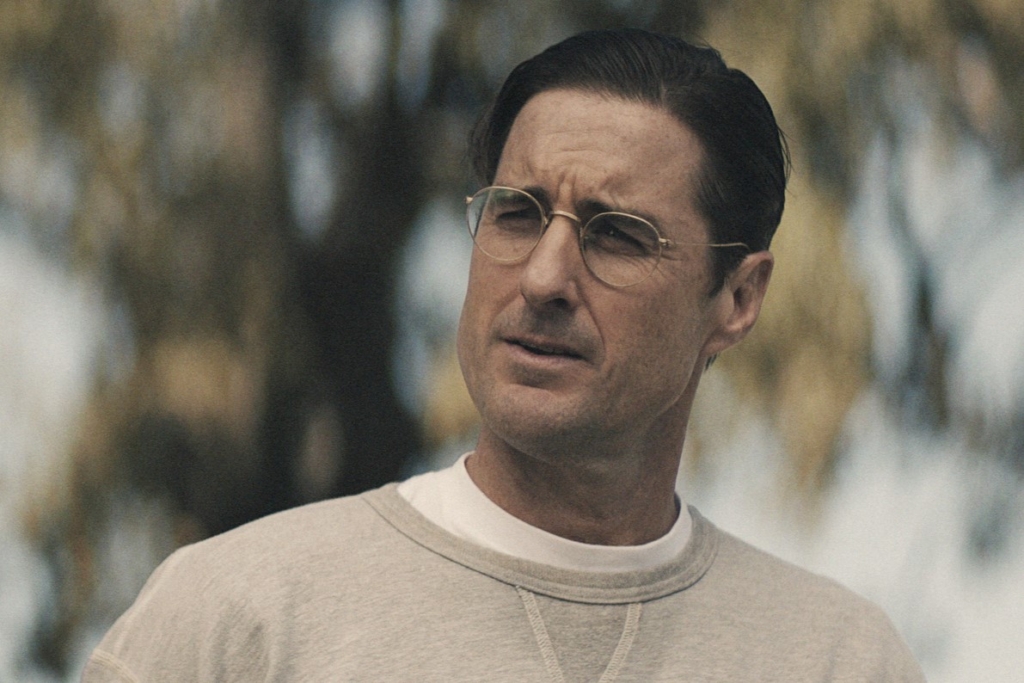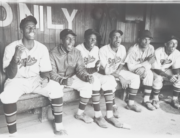
Where Dream Horse’s “true sports story” narrative felt like a plausible series of events and human trials, 12 Mighty Orphans can’t help but swing in the opposite direction. It’s certainly based on true events on how Texas football icon Rusty Russell led his team of Mighty Mites to multiple underdog victories, but the execution feels both conventional and exaggerated. The film offers solid performances and a commitment to its Great Depression aesthetic but nothing moviegoers haven’t seen before.
While Russell’s time at the Fort Worth Masonic Home historically began in the late 1920s, the movie bumps it up to 1938. Russell, played by Luke Wilson, and his wife, Juanita (Vinessa Shaw), have left their old jobs and moved out to this orphanage to work as teachers, where he also attempts to set up a football program for the teenage boys.
Most of them aren’t interested at first. Viewed as outcasts by the world for their lack of a future and homestead, they’re stuck working in a printing business overseen by orphanage co-administrator Frank Wynn (Wayne Knight), who has no qualms administering “disciplinary tactics” when the boys misbehave. Other members of the community, like local Sheriff Manon Hawk (Robert Duvall) and medical practitioner Doc Hall (Martin Sheen), have pity on the orphans, but they can only do so much for them.
Russell, seeing potential in the young men, nevertheless pushes forward on getting the team into Division A football despite the skepticism from league higher-ups and antagonism from rival coach Luther Scarborough (co-screenwriter Lane Garrison). Eventually, the titular 12 emerge as valid players, but compared to their bulkier, more experience rivals, the Mighty Mites can’t win through strength. So, Russell decides to incorporate their speed and nimbleness into a new lineup that allows for more maneuverability and throwing distance, creating the original “spread offense” strategy.
Thus, in traditional sports movie form, this new playstyle bumps the Mites from zero to hero, allowing them to win effortlessly while the other teams struggle to catch up. And because this is an era where morale is low and hope a rare commodity, Masonic Home becomes the type of underdog story that America needs to feel good about itself again. How much of that last part actually happened, even if it’s true, is probably a matter of discussion.
The paradox of 12 Mighty Orphans is that, while a number of story details happened, tonally they feel pulled from a different movie entirely. Whereas Wilson and Sheen play their melodramatic roles seriously, Knight is basically playing Seinfeld’s Newman in the Depression era, only overshadowed in comical evilness by Garrison’s oily-haired disdain for the Mighty Mites’ achievements. President Roosevelt makes appearances in support of Russell’s team, which also happened, but they feel conveniently placed for dramatic purposes. This heavy-handedness isn’t helped by Sheen’s monologues about key events across the film, a decision that doesn’t leave much for subtly.
In between all this is the relationship between the orphans and Russell, a paternal figure using his love for the sport to help his team reject cynicism and unruliness. Wilson makes Russell feel like a compassionate but stern mentor, one who understands their rage to a degree while suffering from his own injuries and PTSD sustained during World War I.
However, due to the large number of characters, not everyone gets as profound a part on screen, with most of the teen drama centering around Jake Austin Walker (Luke Wilson’s co-star from Stargirl) as future pro-football player Hardy Brown. Having witnessed a horrifying family ordeal up close, Hardy is more prone to anger than his teammates, and he doesn’t see much value in football at first. His gradual embrace of the sport is a passable arc, but due to the formulaic script, it works more because of Walker’s performance than how Brown develops as a person and team player.
For those who’ve watched one sports movie or 10, 12 Mighty Orphans will be familiar, for better or for worse. This is an interesting story no doubt, but for such a monumental point in football history, you’d think it would want to avoid telling it in such a safe manner. A little more dramatic flair would have given these touchdowns a bit more rah-rah spirit.






Leave A Comment